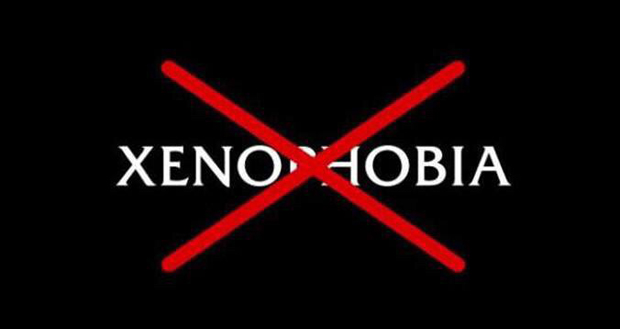There has been a resurgence of xenophobic rhetoric over the past few weeks in South Africa. That of course seems to imply that xenophobic rhetoric only happens periodically which would be incorrect. Xenophobic violence and rhetoric unfortunately has become a norm rather than exception in South Africa. Yet it has increased significantly in the past few weeks.
First there was a video clip that emerged of Limpopo Health MEC Phophi Ramathuba. In the video, the MEC was seen telling a patient she should be getting medical care from the Zimbabwe government. After facing backlash for her remarks, the MEC said she stood by her remarks. She also said her department does not have the budget to provide healthcare for South Africans and undocumented migrants.
Then the Patriotic Alliance’s Gayton Mackenzie said he will not hesitate to switch off a foreign national’s oxygen machine to save a South African. Mackenzie also pledged his support for Ramathuba’s comments.
Related:
Xenophobia Permeates All Levels Of South African Politics
After those comments made the headlines, there were actions taken by Operation Dudula. The anti-immigrant group held pickets outside several hospitals in Gauteng in August. They prevented patients from entering the Kalafong hospital and a hospital in Hillbrow who they believed were undocumented migrants. The protests were halted after engagements with the health minister Joe Phaahla.
All of these comments and actions have happened even as evidence and facts have emerged that immigrants do not put a burden on the healthcare system. Firstly, they only make up less than 8% of the total population. There is also the fact that the South African constitution makes provisions for healthcare access for migrants.
RELATED:
Migrants in South Africa have access to healthcare: why it’s kicking up a storm
However, it is not just the impact that the politicians’ remarks have on actual people as was seen. It’s not just about groups capitalising off the xenophobic rhetoric for their own agendas.
It’s the xenophobic and Afrophobic rhetoric that is overwhelmingly prevalent in South Africa. More than that it’s about how some people get a pass for their xenophobic comments when it is wrapped in so-called polite and nice language.
In August, News24 held an inaugural summit discussing South Africa’s future. During a discussion on the economy, the issue of migrants and immigration came back. One of the speakers said there was a need for more migrants who would grow the economy as opposed to migrant dependants. Nedbank CEO Mike Brown said he is not an immigration expert, but said there are migrants who are currently not contributors to the economy. Brown said South Africa struggles to attract migrants who are contributors to the economy.
The comments made by Brown were met with applause by the room.
READ MORE:
Why single stories that fuel xenophobia are dangerous
It is important to show how comments which are made in boardrooms and business-level conferences are somehow deemed appropriate. This is as opposed to those made by a minister reportedly shouting at a patient or a politician threatening to switch off someone’s oxygen. (which is disgusting – no arguments or excuses)
These comments might all seem different at first glance. However, they are not that different. The underlying point of all these comments is that the South African economy is in a bad place and somehow immigrants are the course of this.
But it’s important to remember that it’s not all immigrants (according to the comments). After all it’s the “right kind of immigrants” then business, government, politicians and the private sector will be all too happy to receive them.
Instead, it’s the most vulnerable and the supposed “wrong kind” of immigrants who are flooding South Africa and causing all kinds of issues.
Xenophobia is xenophobia whether it’s preventing people accessing healthcare or whether it’s spoken in a high-level conference dressed up in business attire.
The economy is in a bad place. People are suffering. But people’s worth should not be determined by whether they are contributing to society or not. Just because a person enters the country using “correct channels” and lives in a suburb does not make them more worthy of someone who lives in an informal settlement and is not part of the formal economy.
The shortcomings of the government, politicians and the private sector should not be ignored. More than that they should not be allowed to scapegoat migrants for their failures whether it’s outright xenophobia or more subtle xenophobia.









